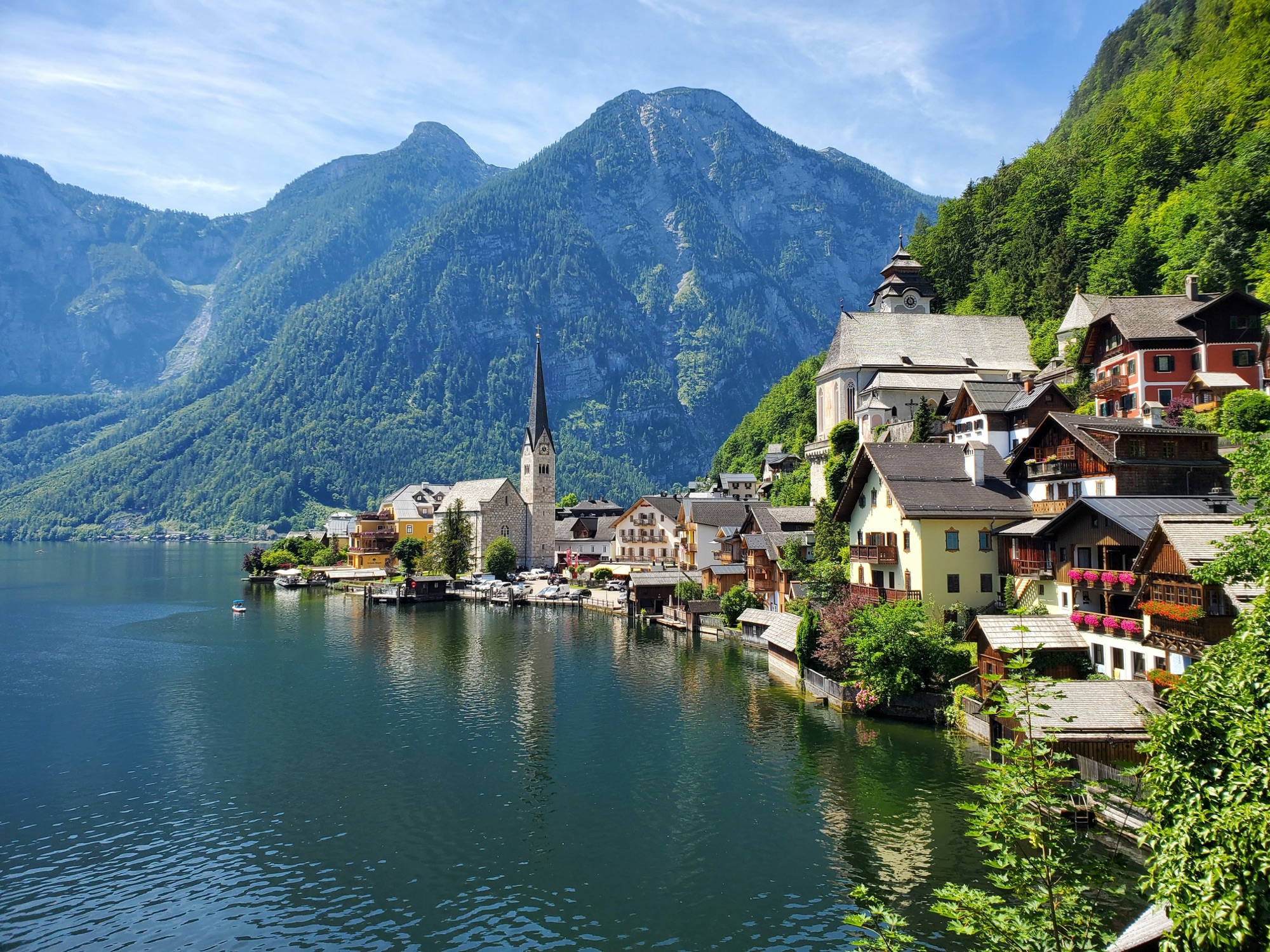Austria, nestled in the heart of Europe, is known for its rich history, stunning alpine landscapes, classical music heritage, and vibrant cities like Vienna and Salzburg. Whether you’re visiting Austria to explore its historic palaces, hike in the Austrian Alps, or enjoy world-class art and music, it’s essential to understand the local customs and practical tips to make the most of your trip. Here are 17 things Americans should know before traveling to Austria.
1. Austria Is More Than Just Vienna
While Vienna, the capital, is a must-visit for its imperial palaces, museums, and cultural history, Austria offers much more beyond its capital. Salzburg, the birthplace of Mozart, is known for its baroque architecture and the Sound of Music history. Innsbruck offers world-class skiing and hiking in the Austrian Alps, and Hallstatt is a picturesque lakeside town with stunning views.
Each region in Austria has its own unique charm, so be sure to explore beyond Vienna to fully appreciate the country’s diversity in landscapes, culture, and history.
2. Cash Is Preferred
While major credit cards are accepted in larger hotels, restaurants, and stores, cash (Euros) is still the preferred method of payment in many parts of Austria, especially in smaller towns, family-owned businesses, and traditional cafes. ATMs (referred to as Bankomats) are widely available in cities and towns, making it easy to withdraw cash when needed.
Make sure to carry enough Euros for day-to-day purchases, particularly if you’re visiting smaller villages or rural areas where card payments may not be accepted.
3. Austrians Value Politeness and Formality
Austrians are generally polite and reserved, and there is an emphasis on formality in social interactions. When greeting someone, it’s customary to say “Guten Tag” (Good day) or “Grüß Gott” (a traditional Austrian greeting), especially in more formal settings. When meeting someone for the first time, a firm handshake is the appropriate greeting, and addressing people by their title and last name is a sign of respect.
Using phrases like “Bitte” (Please) and “Danke” (Thank you) in everyday interactions is important. Austrians value good manners, and politeness is key in both social and business settings.
4. Public Transportation Is Efficient
Austria has an excellent public transportation system, especially in cities like Vienna, Salzburg, and Graz. Trams, buses, and subways (in Vienna) are reliable, clean, and efficient. For traveling between cities, ÖBB (Austrian Federal Railways) provides a fast and comfortable way to explore the country.
You can buy tickets for public transportation at machines in stations, and it’s important to remember to validate your ticket before boarding. Fines for riding without a valid ticket are high, so always make sure your ticket is stamped.
5. Austrian Cuisine Is Delicious and Hearty
Austrian food is known for its hearty and comforting flavors. Some traditional dishes you should try include Wiener Schnitzel (breaded and fried veal or pork), Apfelstrudel (apple strudel), Tafelspitz (boiled beef), and Sachertorte (a famous chocolate cake). Meals are often accompanied by locally brewed beers or Austrian wines, particularly from the Wachau Valley.
Don’t miss out on visiting traditional coffee houses, especially in Vienna, where the cafe culture is an essential part of Austrian life. Austrians love to spend time in cafes, enjoying coffee and pastries, and many of these establishments are steeped in history.
6. Tipping Is Customary but Modest
Tipping in Austria is appreciated, but not as mandatory or high as in the U.S. In restaurants, rounding up the bill is common, and leaving a tip of 5-10% is considered polite. Rather than leaving the tip on the table, tell the server the total amount you want to pay when handing over your payment.
In taxis, rounding up the fare is customary, and hotel staff or porters generally receive €1-2 per bag. In cafes or for smaller services, simply rounding up the total to the nearest euro is appropriate.
7. Winter Sports Are a Major Attraction
If you’re visiting Austria in the winter, consider taking advantage of the country’s world-class ski resorts. Regions like Tyrol, Salzburg, and Vorarlberg offer some of the best skiing and snowboarding in Europe. Whether you’re an experienced skier or a beginner, there are resorts for every level.
Beyond skiing, Austria’s alpine regions also offer activities like snowshoeing, sledding, and even ice climbing. If winter sports aren’t for you, the alpine villages are still worth a visit for their scenic beauty and cozy charm.
8. Sunday Is a Day of Rest
In Austria, Sundays are traditionally a day of rest, and most shops, including grocery stores, are closed. This is a time for Austrians to spend with family or engage in leisure activities like hiking or attending church. However, restaurants, cafes, and tourist attractions typically remain open.
If you need to do any shopping, plan ahead and get what you need on Saturday, as very few places will be open on Sundays. In larger cities, you may find some stores in train stations or tourist areas that remain open, but for the most part, the country shuts down on Sundays.
9. Austria Is Safe and Clean
Austria is known for being a safe and clean country, with low crime rates. Violent crime is rare, and most travelers feel comfortable exploring cities and rural areas alike. However, as with any destination, it’s important to stay aware of your surroundings, especially in crowded tourist areas where pickpocketing can occur.
Austrians also take great pride in keeping their cities and public spaces clean. Littering is frowned upon, and you’ll find plenty of recycling bins throughout the country.
10. Know the Quiet Hours
Austrians value peace and quiet, especially in residential areas. Quiet hours (known as Ruhezeit) are typically between 10:00 PM and 7:00 AM, during which loud noises, such as music, construction, or vacuuming, are discouraged. On Sundays and public holidays, these quiet hours may extend throughout the day.
When staying in a hotel, apartment, or Airbnb, be mindful of these quiet hours and try to keep noise levels down, especially in the evening. It’s also considered respectful to avoid making unnecessary noise in public places.
11. The Tap Water Is Exceptionally Clean
Austria has some of the cleanest tap water in the world, and it’s perfectly safe to drink throughout the country. In fact, much of Austria’s tap water comes from alpine springs, so it’s not only safe but also delicious.
You’ll rarely need to buy bottled water in Austria, as tap water is readily available in restaurants and hotels. Just ask for “Leitungswasser” if you’d like tap water with your meal instead of mineral water, which is usually the default.
12. Vienna’s Coffee Culture Is Unique
Vienna’s famous coffeehouse culture is an essential part of the city’s charm and history. These coffeehouses are not just places to drink coffee, but social hubs where people meet to read, chat, or simply enjoy the ambiance. Some of Vienna’s most iconic coffeehouses, like Cafe Central and Cafe Sacher, are steeped in history and were once frequented by famous figures like Sigmund Freud and Gustav Klimt.
When visiting a Viennese cafe, don’t expect fast service—Austrians enjoy lingering over their coffee and pastry for hours, and you’re welcome to do the same. Try a traditional coffee, like Einspänner (espresso with whipped cream) or Melange (similar to a cappuccino).
13. Don’t Expect Ice in Drinks
Austrians typically don’t add ice to their drinks, even in the summer. Cold beverages are usually served chilled, but without ice. If you prefer ice, you can ask for it, but it’s not a common practice, and many places may not offer it. This is especially true for water or soft drinks.
In cafes or restaurants, don’t be surprised if your drink arrives without ice, and if you ask for it, expect just a few cubes rather than a glass filled with ice.
14. Dress Modestly for Religious Sites
Austria is home to many beautiful churches and cathedrals, such as St. Stephen’s Cathedral in Vienna and the Salzburg Cathedral. If you plan to visit any religious sites, it’s important to dress modestly. Both men and women should cover their shoulders, and shorts or revealing clothing should be avoided.
Most churches welcome visitors, but showing respect by dressing appropriately is appreciated, especially when services are taking place.
15. The Sound of Music Is Big in Salzburg
For fans of The Sound of Music, visiting Salzburg is a must. The city is where much of the classic movie was filmed, and there are plenty of tours available that take you to the iconic locations, such as the Mirabell Gardens and Nonnberg Abbey.
Even if you’re not a huge fan of the movie, Salzburg’s connection to Mozart and its picturesque setting along the Salzach River make it worth exploring. The city is known for its baroque architecture and stunning alpine backdrop.
16. Smoking Is Still Common in Austria
While Austria has made strides in reducing indoor smoking, it’s still common to encounter smokers in outdoor cafes, bars, and public spaces. Smoking in restaurants and bars has been restricted, but in some establishments, there may still be designated smoking areas.
If you prefer to avoid smoke, look for non-smoking sections in restaurants or choose outdoor seating in cafes where you may have more fresh air, though some outdoor areas also permit smoking.
17. Austrians Are Proud of Their Cultural Heritage
Austria has a deep cultural heritage, particularly when it comes to classical music, opera, and art. Many of the world’s most famous composers, including Mozart, Beethoven, and Schubert, lived and worked in Austria. Visiting the Vienna State Opera, attending a Mozart concert in Salzburg, or exploring the Kunsthistorisches Museum in Vienna are essential experiences for music and art lovers.
Austrians take great pride in their cultural contributions, so showing interest in their history, music, and traditions is a wonderful way to connect with locals.
Conclusion
Austria is a country of stunning landscapes, rich history, and vibrant culture, offering something for every traveler. From the majestic alpine scenery and world-class skiing to the musical heritage of Vienna and Salzburg, Austria is a destination that captivates the senses. By understanding the country’s customs, embracing its slower pace of life, and respecting local traditions, you’ll be able to fully appreciate the unique charm of Austria. Whether you’re indulging in Austrian cuisine, exploring ancient palaces, or hiking in the Austrian Alps, Austria promises an unforgettable experience.




